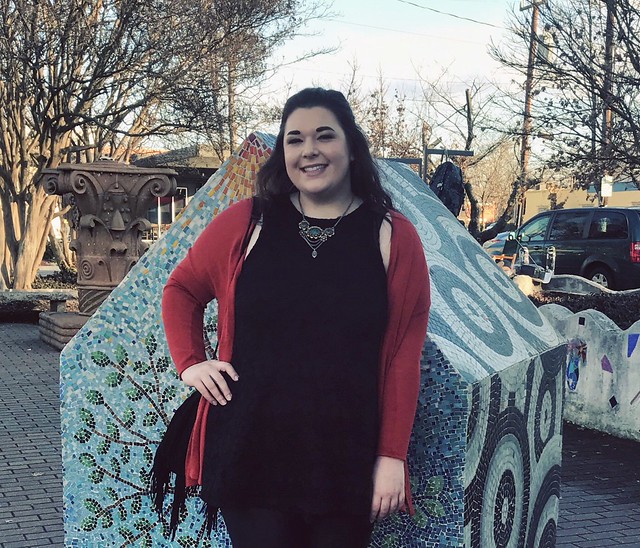During the summer of 1936, the hotel cast a dark shadow over the town.
On July 17, a 19-year-old blonde New York University honor student named Helen Clevenger was found brutally murdered in her hotel room.
Clevenger was in town visiting her uncle, a professor at NC State University, according to Haunted Asheville, the oldest ghost tour in the city.
Tadd McDivitt, chief occult researcher for Haunted Asheville, says she was found with cuts and lacerations on her face, as well as a gunshot wound to the chest.
“The vivid description in the police report stated that her green and white striped flannel pajamas had been completely soaked in blood,” he says. “She was curled into a ball, as if crying or praying when she was killed.”
When police started their investigation, the only suspects they had were the elite hotel guests, who were very embarrassed being the focus of the investigation, McDivitt says.
As word got out, he says the press referred to Battery Park as the Murder Hotel, giving it something of a reputation.
In order to put an end to the black cloud looming over Asheville, McDivitt says police were under a lot of pressure from their captain, as well as the press to bring the perpetrator to justice.
Two months into the investigation, there was a confession out of nowhere, he says. Martin Moore, a 22-year-old African-American boy from South Carolina, confessed to the crime.
At the time, he worked as a bellhop at the hotel. McDivitt says Moore was going door-to-door, robbing unlocked rooms.
“They were in such a rush, his trial was fast tracked,” McDivitt says. “I kid you not, the ink was barely dry on that confession when they pushed his trial through. He was put to the gas chamber in Raleigh four days after the confession was signed.”
The Battery Park Hotel in which Clevenger was murdered is actually the reincarnated version.
According to the Joint Center for Housing Studies (JCHS) of Harvard University, Colonel Franklin Coxe, a banker and real-estate investor, erected the original gothic-styled hotel in 1886.
The hotel once stood on a 10-acre hill, the site of a former Civil War battery, bringing about its name, according to The Citizen-Times.
The article also reported legendary guests such as, George Vanderbilt and Thomas Wolfe, contributed to its famous reputation.
According to Asheville: A Postcard History, it was also the first hotel in the South to contain an electric elevator.
Years after Coxe passed, Edwin W. Grove — a pharmaceutical entrepreneur and ambitious real estate developer – purchased the property and replaced the English Baroque styled structure with a Spanish-Romanticism inspired high-rise in 1924.
Although the person responsible for Clevenger’s murder was put to justice, after surviving the Great Depression, the hotel eventually closed in 1972.
Since then, the building has experienced all kinds of abnormal activity, he says.
“The locals told me there is a service elevator that runs off its own volition, up and down all night long,” Tadd McDivitt says. “It just keeps going by itself, making the clatter wake everybody up.”
McDivitt says that very elevator also served as Martin Moore’s station as a bellhop.
He also says during the ‘70s and ‘80s, many locals have witnessed a red glow coming from the room she was murdered in.
McDivitt says the once posh hotel is currently run by National Church Residences, and serves as section eight housing for low-income, disabled senior citizens.
Some say the floor Helen Clevenger died on stays cold.
“They all say that the second story stays freezing cold no matter what season it is, or what they do to the thermostat,” he says. “It just stays completely frigid.”
Still, McDivitt says the residents absolutely love talking about the eeriness of the building.
Donna Nawrocki, services coordinator at Battery Park Apartments, says she hasn’t witnessed anything abnormal, however, she knows plenty of tenants who have.
Gail O’Brien, a current resident of Battery Park Apartments, has lived there for 23 years.
O’Brien says she has never witnessed anything abnormal, however, she gets an antsy feeling while on the roof garden, which is the 13thfloor.
She believes that antsy feeling is restless energy from the people who have passed.
“Sometimes you get that creepy feeling on the back of your neck,” O’Brien said. “I think it stands to reason that a lot of people have died here.”
She says she loves the experiences and stories she’s heard over the years, and doesn’t plan on moving any time soon.
“It’s a terrific building,” she says. “I’ve known people who have had their prom here, have gotten married here. Lots of spirits in this place.”




